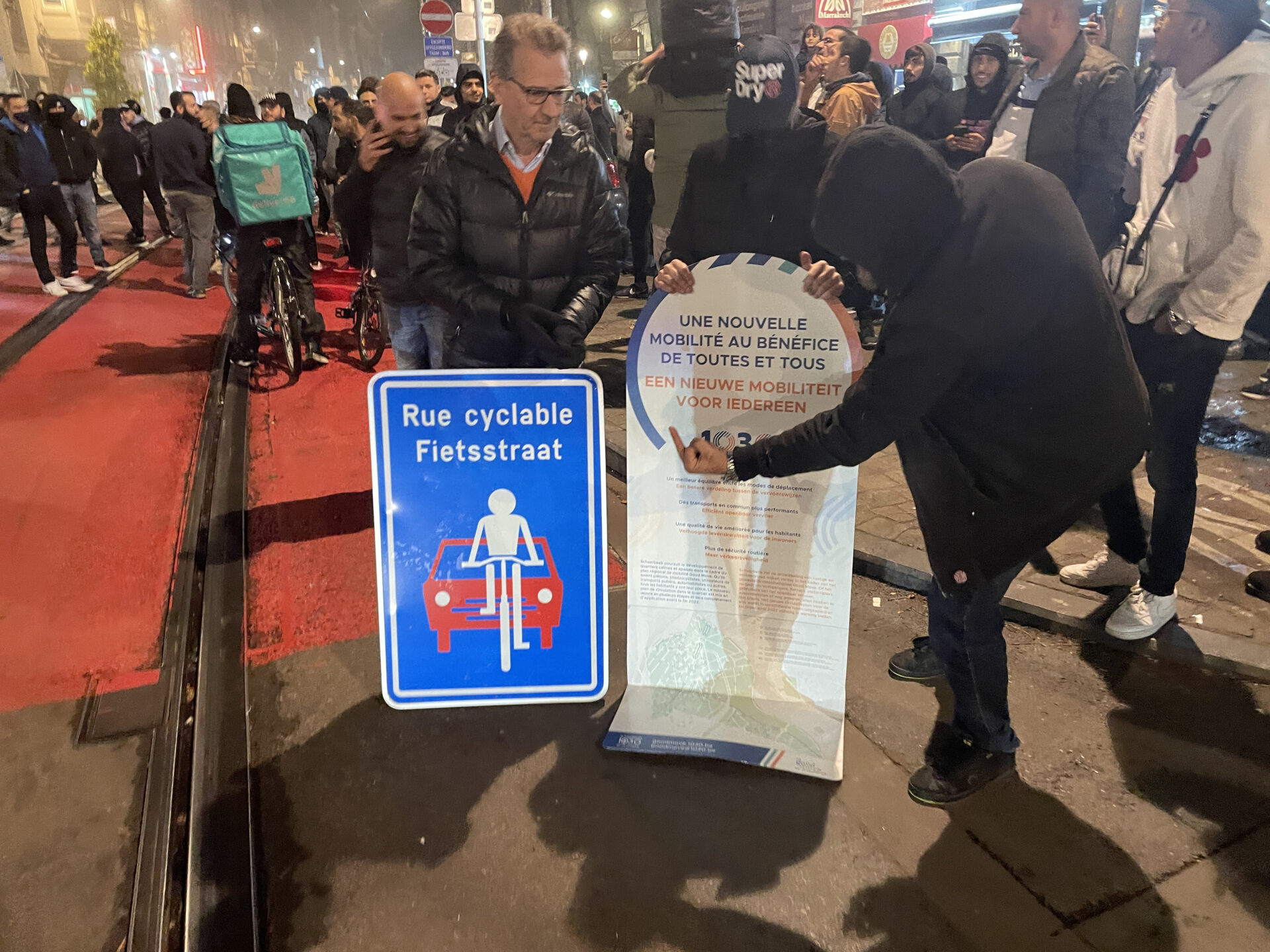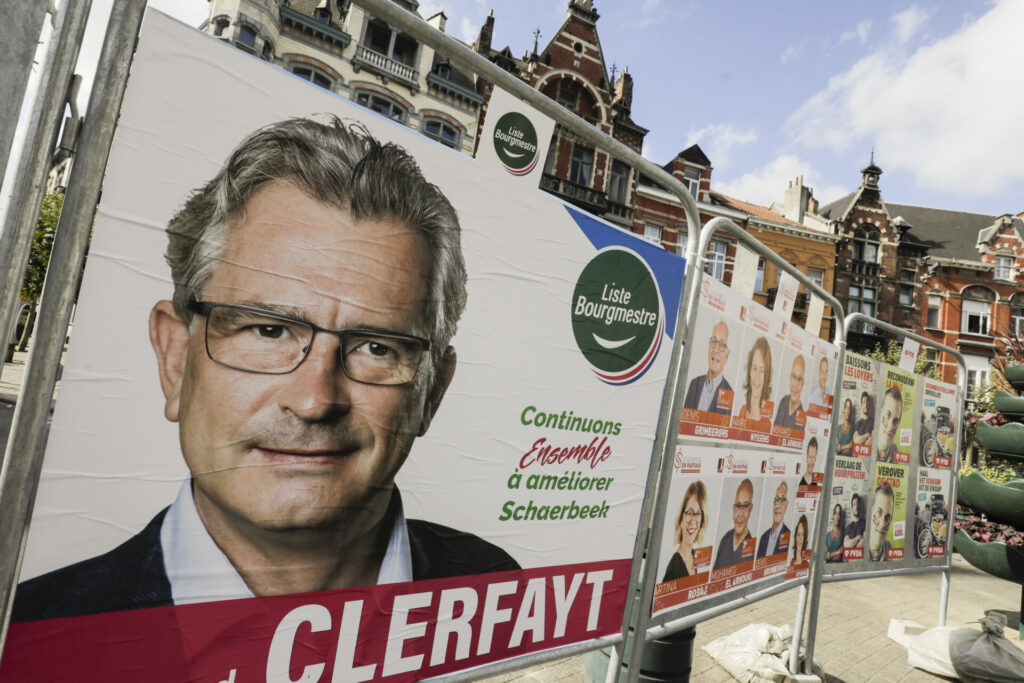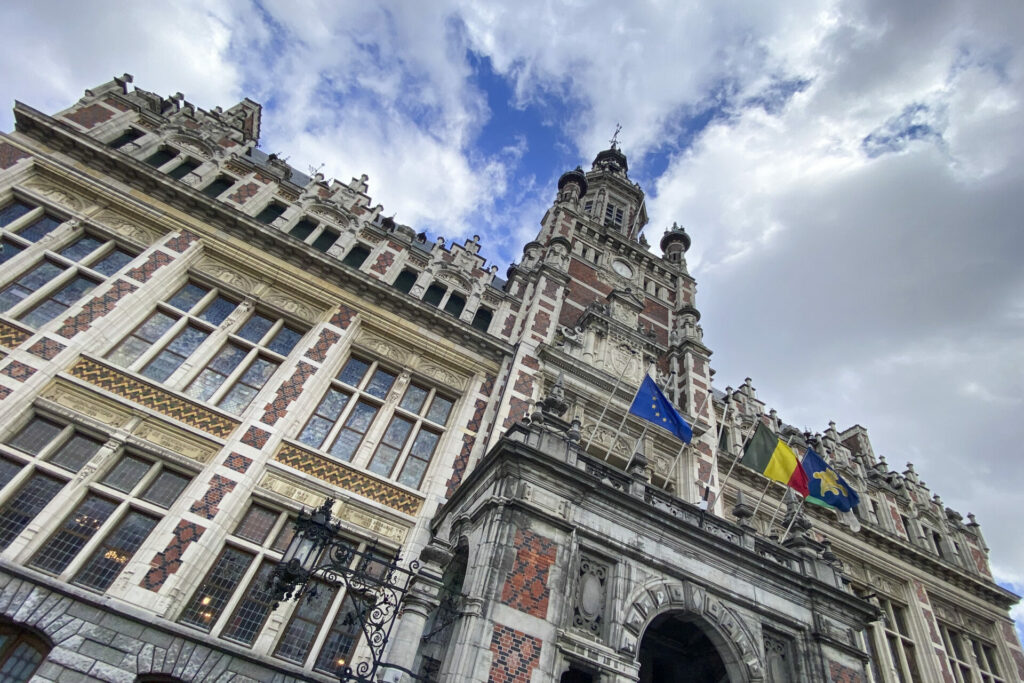With over a year to go until local elections, Schaerbeek’s municipal council is struggling to deal with the various crises facing the municipality.
On Monday, La Libre reported on the issues that have beset the Brussels municipality. These include the ongoing reception crisis, a growing sense of insecurity, public protests against the Good Move traffic plan and sexual harassment scandals in its political administration.
The past year has seen high-profile crimes occur in Schaerbeek, notably the murder of police officer Thomas Monjoie in November of last year. He was stabbed in the municipality’s red-light district near Gare du Nord.
The station has also served as a refuge for many asylum seekers who have been left on the streets due to the Federal Government’s failure to provide them with accommodation. The situation forced them to occupy the Palais des Droits building, where a person has died and where many others have been infected with diseases.
Internally, the municipal leaders had to contend with the suspension of long-standing centrist councillor Michel De Herde, who took a leave of absence after being accused of sexually harassing his colleague, the Councillor for Equality, Sihame Haddioui (Ecolo). He has since been charged by the police over an unrelated case of child rape.
The most striking issue, though, appeared to be the municipality’s turmoil over the implementation of the regional Good Move plan to reduce car traffic in the Pavillon and Cage aux Ours neighbourhoods. However, these plans were met with mass protests from residents which led the reform to being dropped.

Picture from a protest in the municipality. Credit : Belga / Nils Quintelier
According to the acting mayor’s chief of staff, Marc Weber: "I have never seen such polarisation in the 25 years I have been here." He then called on the federal authorities to intervene. Some, however, have shifted the blame for Schaerbeek’s struggles onto its reigning duopoly: Bernard Clerfayt and Cécile Jodogne, the municipality’s mayor and acting mayor from the francophone centrist DéFI party.
Related News
- Six injured following two violent fights in Schaerbeek
- Reception centre for young asylum seekers opens in Schaerbeek
- Schaerbeek's #MeToo: Councillor suspended at his own request
In Belgium, politicians are able to hold multiple offices, which saw Clerfayt elected as mayor but is also currently serving as the Brussels government’s Minister of Employment. He appointed Jodogne to lead the municipality in his absence.
This may have backfired on Jodogne, though, with the former KU Leuven professor Albert Martens telling La Libre that "the whole municipality is wondering who their mayor is: Cécile Jodogne or Bernard Clerfayt?"

Credit: Belga / Thierry Roge
Sophie Querton, head of the local CPAS public services, echoed Weber’s sentiments and explained that Jodogne had inherited a "poisoned chalice." She explained that Jodogne did not hold the same weight as Clerfayt, whom she described as a "leader keeping Schaerbeek above the fray."
Moreover, Clerfayt has made no secret of his eventual desire to return as mayor of Schaerbeek after next year’s elections, which has only further weakened Jodogne’s leadership.
What next?
In any case, the political consequences of the municipality’s turmoil will only be felt next year when residents head to the polls.
A consensus has emerged on Schaerbeek's governing majority, composed of Clerfayt’s centrist party DéFI and the French-speaking greens Ecolo, not returning to power.
However, the liberal party MR is set to prioritise the municipality at next year’s elections, with Belgium’s Foreign Affairs Minister Hadja Lahbib touted to lead their electoral list.
Lahbib, who used to work as a TV journalist before joining government, currently resides in Schaerbeek, with recent polls naming her the third most popular politician in Brussels.

